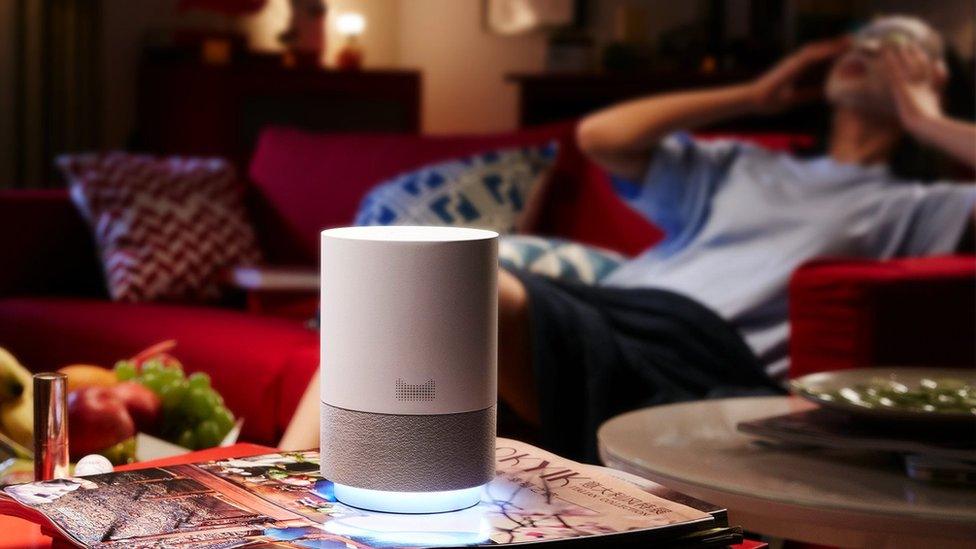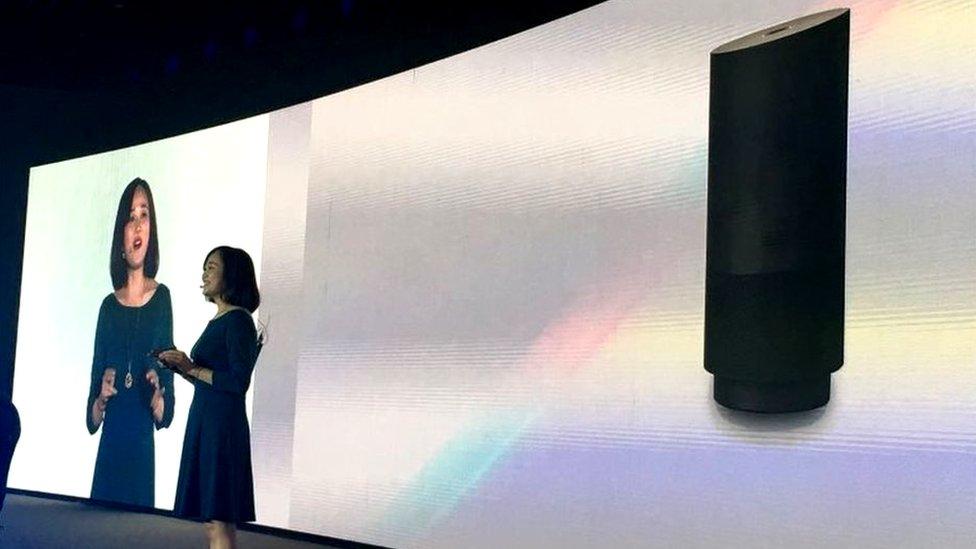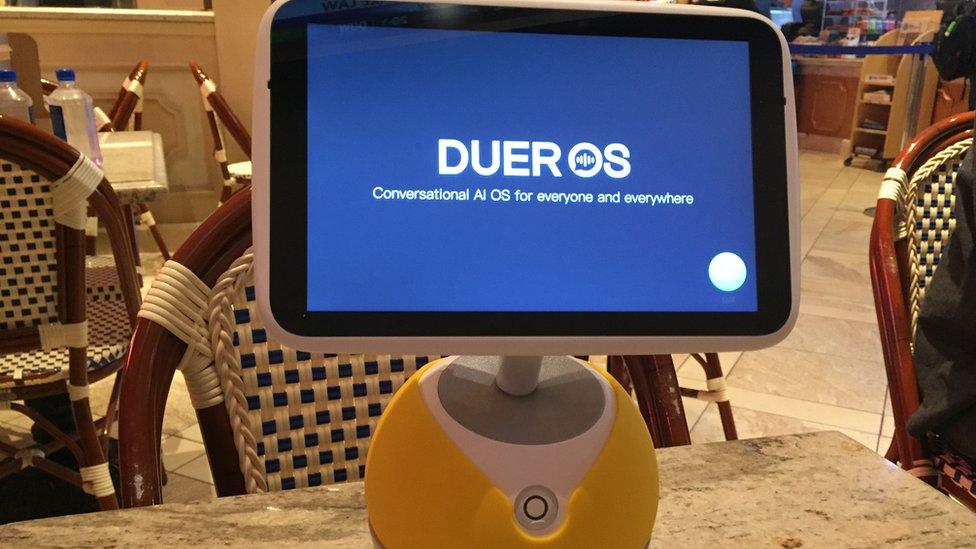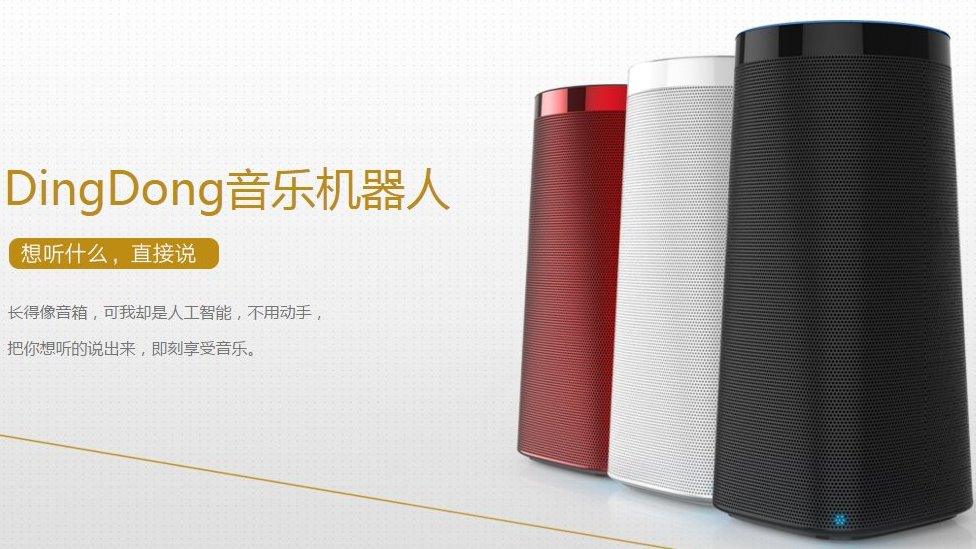Alibaba reveals Echo-like smart speaker
- Published

The Tmall Genie has six microphones to help it hear orders from up to 5m (16.4ft) away
Alibaba is the latest technology giant to unveil a smart speaker.
The voice-controlled Tmall Genie can be used to play music, run third-party apps and buy goods from the Chinese retail giant's online stores. Like many such devices, it lacks a display.
At launch, it will understand only Mandarin and be sold in the company's domestic market.
It will compete in China against devices already launched by Baidu and JD.com.
Tencent - China's biggest technology company by market capitalisation - has announced it has a similar product in development.
In the West, Amazon's Echo range of smart speakers compete against Google Home. Apple and Microsoft have similar products scheduled for release soon. And Samsung is readying a speaker of its own, powered by its new Bixby virtual assistant, according to a report by the Wall Street Journal on Tuesday, external.
Smarter shopping
Alibaba's new product derives its name from the company's e-commerce platform - Tmall - and during a demonstration in Beijing was used to order a delivery of Coca-Cola and buy credit for a phone.

The Tmall Genie was unveiled at a press conference in Beijing
Tmall allows local and international retailers to run their own virtual storefronts on its platform and says it is China's third most visited shopping site.
"It clearly is an advantage if - like Amazon - you can pull consumers into your retail ecosystem with a smart speaker," said Eden Zoller from the technology consultancy Ovum.
"But one thing we need to remember is it's early days for this category, and there remain questions of consumer trust in using the digital assistants to buy goods, on a smartphone or smart home speaker device.
"By that, I mean both the security of the transaction and privacy concerns about how personal data is leveraged and shared."
Alibaba has addressed these concerns in part by using voiceprint-technology to try to restrict purchases to recognised users.
In addition, it has built in support for Alipay, the company's popular online payment system, which is similar to PayPal.
Baidu's smart speaker is more expensive but includes a built-in touchscreen
However, to begin with, the company is marketing the device as a "limited beta" release, external that will help provide feedback before it is ready to mass produce the item.
It will charge 499 yuan ($73; £57) for the product, making it one of the cheapest on the market.
- Published5 January 2017

- Published24 November 2016
